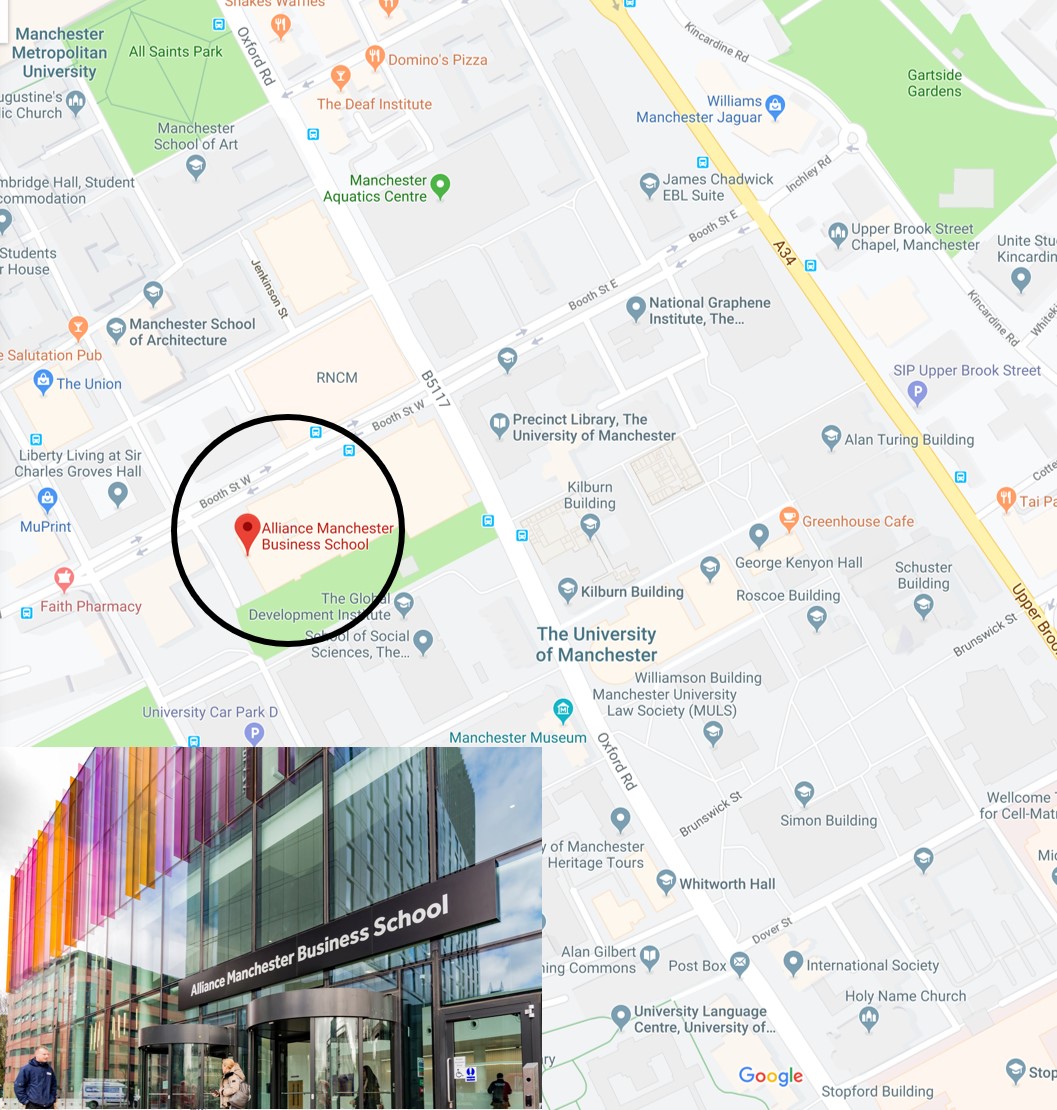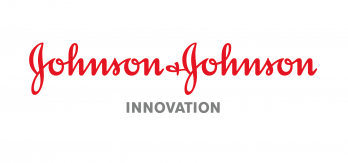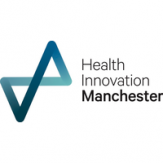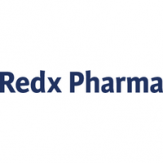Branch
Select your branch
Pioneering Precision and Digital Health
Description
The synergy of Precision and Digital Health are set to revolutionise how we experience healthcare. Firstly, developments in genomics and big data have led to incredible insights for tailoring treatments for specific patients. This has led to development in cancer therapies. Using our devices, we can gather and share data about our health in real time to be more informed. This empowers individuals about our their own medical needs and well-being. Furthermore, the potential of AI to make sense of the vasts amounts of data now available allows further insights into our health. As a result, big tech companies such as Google have been attracted to using their technical expertise for health applications.
With the global market of precision medicine rising to $87.7 M by 2023 and healthcare technology growing at 15.9% per year, according to Deloitte, there are ample opportunities in these sectors. Similarly, Manchester itself has gathered much support for the sector, gathering over £100 M in investment. The challenges addressed by these areas are vast and require coordination of many areas. Therefore, we want to support a network of academics, clinicians, professionals, investors, students, policy makers and members of the public.
The Innovation Forum Manchester aims to celebrate Manchester's role as a hub in precision medicine and digital health using its strengths in life sciences and and technology. Come along on the 22nd of August for an evening of insights from thought leaders from around the North West. Additionally, exciting start-ups in the field will also get a chance to pitch their innovative ideas. We encourage anyone with an interest to attend, learn and connect about this exciting field.
What are Precision and Digital Health?
Precision Health (or Precision Medicine or Personalised Medicine) is an approach to predict the best treatment strategies for patients. These are based on the genetic understanding of their disease and heavily relies. Therefore the collaboration of academic research, pharma, and healthcare providers is essential. Digital Health is an important tool to individualise treatment by providing solutions to monitor, process, and integrate large amounts of data of patients. Artificial intelligence (AI) is informing decisions based on health records and deep-learning methodologies. Therefore, by combing developments in these areas we can develop exciting innovations.
As with any emerging area there are many questions, such as: How do we deliver precision medicine? How will it be refunded? How do we ensure security in digital health? Who owns data regarding an individuals health? Therefore, by gathering an array of experts we aim to address these questions.
Innovation Forum
The Innovation Forum’s main goal is to bridge the gap between academic science and industry and to support scientists and entrepreneurs to deliver the breakthroughs of tomorrow. Our global network connects academics, start-ups, professionals and policy makers to drive forward innovations to impact people's lives.
Do you want to know more about the Innovation Forum? Want to present a stall at the event? Or want to join the Innovation Forum team? Contact us
Don’t miss out this great opportunity. Register now to hear exciting talks and network with those shaping the future of precision and digital health.
The event location can be seen below. The entrance of the Alliance Manchester Business School (AMBS) is on the opposite side of the building from Oxford Road. Registration will be near the main reception
Schedule
Registration
Introduction to the Innovation Forum
Keynote 1: Anthony Whetton.
Director of the Manchester Precision Medicine Institute at the University of Manchester
Keynote 2: Giulia Boselli
Knowledge Transfer Manager, Innovate UK.
Keynote 3: Health Innovation Manchester
Break
Start-up Showcase
Jane Theaker, CEO of Kinomica (AI in precision medicine)
Dr. Saba Alzabin, Co-founder & CSO of Nabta Health (hybrid healthcare for women)
APIS Assay Technologies (diagnostics through genomic medicine and big data)
Panel Discussion
Closing words
Networking and drinks reception
Speakers
Professor Tony Whetton is currently the Director of the Stoller Biomarker Discovery Centre and the Manchester Precision Medicine Institute at the University of Manchester. He is past Director of the Leukaemia Research Fund Cellular Development Unit and is now Director of the Leukaemia Research Fund Mass Spectrometry Unit based at the Wolfson Molecular Imaging Centre, Christie Hospital. He obtained a PhD in signal transduction research and biophysical chemistry. This was followed by one year of research into membrane structure using electron spin resonance techniques. He then moved into a completely different field of experimental haematology, with two years postdoctoral research in the Experimental Haematology section of the Paterson Institute. He left this position to take up a lectureship at UMIST in 1984 where he became the Professor of Cell Biology in 1995 and Head of Department in 2001. He joined the School of Medicine at the University of Manchester in 2003 as Professor of Cancer Cell Biology, based at the Christie Hospital. Here he has established a state of the art biological mass spectrometry facility for stem cell and leukaemia research. He is currently systematically defining the downstream proteomic and phosphoproteomic effects of the protein tyrosine kinases associated with myeloproliferative disorders and myeloid leukaemias to discover common mechanisms for leukaemic transformation. This research has recently expanded and developed to include a clinical proteomics research capability, where the objective is to discover new biomarkers associated with the cancers. He is also Adjunct Professor in the Department of Gene and Cell Medicine at the Mount Sinai School of Medicine in New York, USA where he works with the Black Family Stem Cell Institute, using proteomics to define embryonic stem cell differentiation control.
The current objective of this work is to combine the incisive techniques of proteomics to understand biological processes in normal and leukaemic stem cells. He has been a consultant to many international pharmaceutical and proteomics companies and has extensive experience advising national and international science funding bodies. He has also served as external examiner to higher education institutes overseas as well as in the UK.
The Knowledge Network Health team is a multi-disciplinary team that represents the whole of the health sector from medicines development and manufacture through to medical devices and digital systems.
Giulia's role is to facilitate collaborations among businesses, academia, research institutions and investors that translate research breakthroughs into products and services and, ultimately, drive the UK innovations within the Precision Medicine landscape.
As an academic health science and innovation system, Health Innovation Manchester is at the forefront of transforming the health and wellbeing of Greater Manchester’s 2.8 million citizens. Our role is to bring forward a constant flow of health and social care innovation, putting them through an effective but streamlined evaluation process so they are adopted at pace and scale across the 10 localities in Greater Manchester and the wider UK. We do this by harnessing the assets of our world-leading researchers, fostering partnerships with industry and supporting our NHS and social care providers to adopt innovation, such as through digital technology, changes to practice or optimising medication
Kinomica’s mission is to provide competitive intelligence to enhance tailored treatment decisions involving anticancer drug therapies
Apis Assay Technologies Ltd. will help realise the clinical and commercial potential of genomic medicine in the diagnosis and stratification of treatment, and in the prediction and prevention of disease.
Using the transformational power of genomic medicine and big data, Apis Assay Technologies Ltd. will address directly the failures in biomarker translation and industrialisation, which have frustrated such efforts in the past. Benefiting from the devolution of all NHS expenditure to Greater Manchester and working as an industry partner of Health Innovation Manchester, Apis Assay Technologies Ltd. brings the benefits of novel, transformational molecular diagnostics to Greater Manchester and further beyond into the global healthcare market.
Dr Casson gained his undergraduate degree from the University of Oxford in 2006 where he read Engineering Science specialising in Electronic Engineering (MEng). He completed his PhD from Imperial College London in 2010, winning the prize for best doctoral thesis in electrical and electronic engineering. Dr Casson worked as a research associate and research fellow at Imperial College until 2013 when he joined the faculty at the University of Manchester. He is good clinical practice certified and is a site miner for the Manchester Integrating Medicine and Innovative Technology (MIMIT) scheme for systematically connecting clinicians and engineers to address unmet clinical needs. Dr Casson is currently a Senior Member of the IEEE, Fellow of the Higher Education Academy, and vice-chair of the Institution of Engineering and Technology’s healthcare technologies network.
Sally Price is Head of Cell and Translational Science at the Medicines Discovery Catapult (MDC), an Innovate UK backed not-for-profit company supporting the UK SME community to develop better medicines. She is responsible for teams of scientists developing complex cell models, novel biomarkers, preclinical imaging and drug delivery. Sally has significant expertise in drug discovery gained from academic research and over a decade in the pharmaceutical industry. Aswell as her research background, Sally is experienced in developing business models with life science SMEs and understanding the commercial challenges of drug discovery. Sally has specific research interests in neurodegenerative and fibrotic diseases.
Wais Shaifta joined Push Doctor in 2017 and since becoming CEO last year has helped shift the digital health provider’s focus towards giving NHS patients easier access to healthcare as part of a wider drive to help people live happier, healthier lives.
Prior to joining Push Doctor, Wais spent three years with wellbeing platform Treatwell and six years with Just Eat, leading the food delivery portal’s UK operations and international expansion. This has allowed Wais to establish a wealth of customer and product expertise within the consumer technology sector, as well as an advanced understanding of how to realise disciplined expansion through the implementation of an effective fast-growth strategy.
Dr. Alzabin received a BSc and BA in Pre-Medical Studies and Urban Design and Architecture from New York University. After, she was awarded a scholarship by the NIH to pursue a PhD at New York University School of Medicine. Her doctoral research has been patented and is being developed for immuno-therapeutics and combination therapies in oncology and autoimmune disease. After, Saba joined Imperial College London as a post-doctoral fellow where she has been key in the identification of the basis for patients who are non-responders to the major antibody therapy for autoimmune diseases. Dr. Alzabin then joined the University of Oxford to undertake research focused on infectious triggers of autoimmunity, and embarked on an academic-industrial partnership where she has established a pre-clinical programme targeting immune-related disorders. She is an avid promoter of academic-industrial collaboration and education, and has been awarded KTP and TSB grants by the U.K. government to promote her efforts. In addition, Saba holds a number of memberships and advisory board positions. She is now the Co-Founder and Chief Scientific Officer of the first hybrid health platform, Nabta Health, which is focused on women's health. Her mission is to improve personalised healthcare pathways by diversifying data, correcting inaccuracies in experimental and clinical design, and improving access using digital health technologies.
Dr. Peter Bunyard has a degree in Biochemistry from Sheffield University and a PhD in Immunology from University College London. Peter has worked in pharmaceutical research for 20 years with his career progressing through research roles in UCB Celltech, GSK, Takeda and now Redx Pharma where he is Head of Fibrosis.
Paul is the Associate Dean for Business Engagement and Research professor in the Faculty of Biology, Medicine and Health at the University of Manchester. He passionate about research being highly active and generating over £15M in research/enterprise income, attracting significant funding from BBSRC, MRC, EPSRC, European Union, as well as from a number of charities, industry and philanthropy. He maintains a strong track record of recent publications (>50 papers/reviews published in the last 3 years) including recent papers in Aging Cell and Nature Cell Biology. He lines managers a number of academic and professional support staff and is soon to be the Deputy Head of the Division of Cancer Sciences at Manchester and is the Manchester BRC Lead for Industry and Research.
With research strengths in precision medicine and wellness, drug discovery, validation, cell stress and survival mechanisms, senescence, DNA damage, and epigenetics and the use of AI and multiple ‘omics in cancer biology, cardioprotection and apoptosis regulation, he has made several important discoveries in the field. Paul’ lab has generated a number of research-industry activities, attracting philanthropic funding, and industry bespoke funded projects, supporting cell stress & biomarker research in cancer research (prostate, breast, endometrial and haematological cancers). biomarkers and prostate cancer and now oversees the UoM-A*Star (Singapore) research alliance. He is also cofounder of Karus Therapeutics, Pentagon Therapeutics and PRECignature whilst also advising a number of other companies as a consultant and NED.
Request sponsorship opportunities package
Sponsor this event















